What is a licensed electrical worker (LEW) in Singapore?
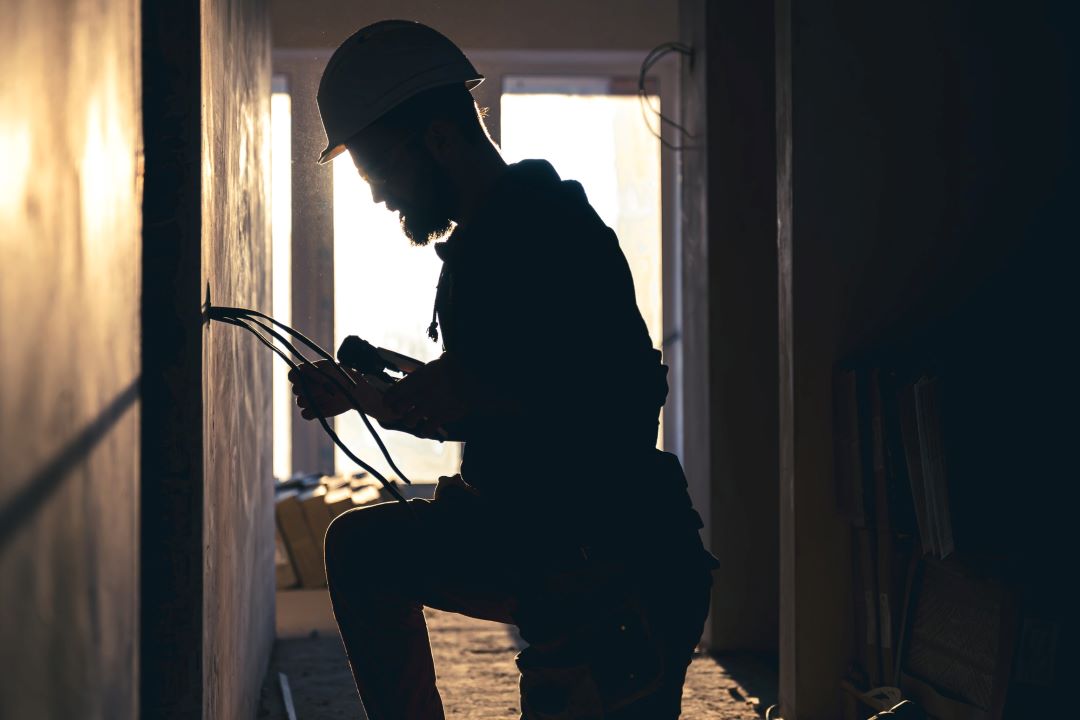
In Singapore, a licensed electrical worker is an individual who has obtained the necessary qualifications and certifications to perform electrical installations and work in accordance with the Electricity Act.
To become an EMA licensed electrical worker, individuals must apply to the Energy Market Authority (EMA) and meet certain requirements, including holding a technical education certificate from the Singapore Institute of Technology.
The application process may involve paying an application fee and passing a written assessment. The list of licensed electrical workers in Singapore includes electricians, electrical technicians, and electrical engineers.
Electricians are licensed to perform electrical work for low voltage installations with an approved load not exceeding 45kVA.
Electrical technicians, on the other hand, have a broader scope of expertise and are licensed to carry out electrical work for both low and high voltage installations, up to an approved load not exceeding 300kVA.
Licensed electrical engineers, who are professional engineers, hold the highest class of electrical worker license.
They have the qualifications and expertise to handle complex electrical systems and installations.
In Singapore, the licensing of electrical workers is essential to ensure the safety and compliance of electrical installations and to protect the well-being of both individuals and properties.
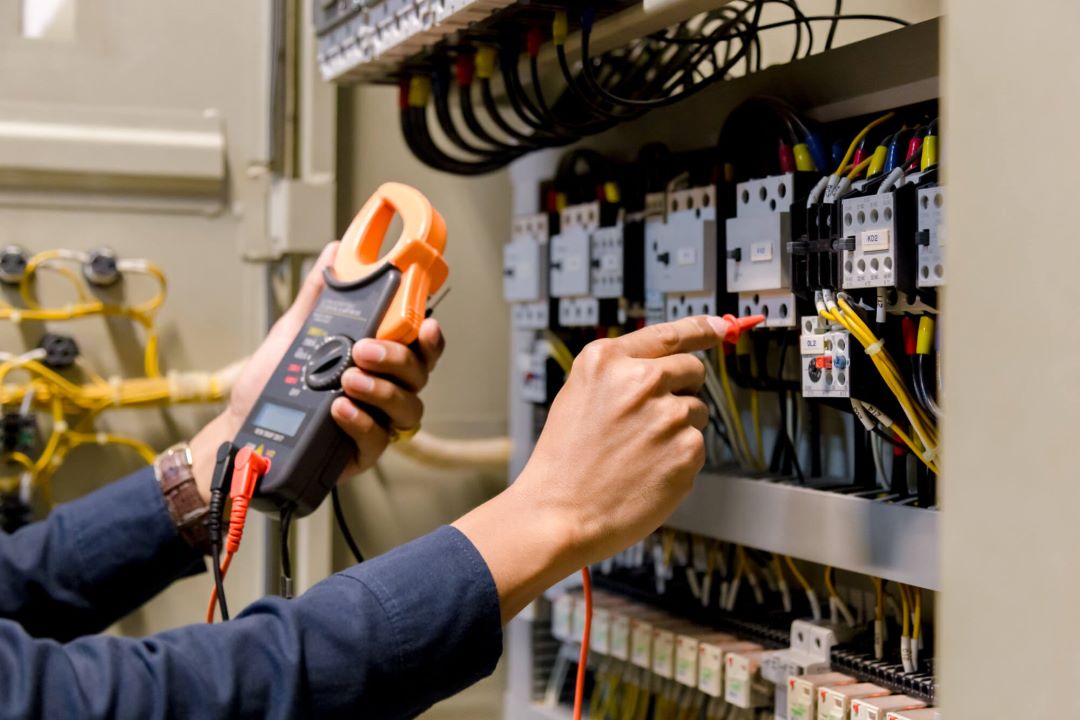
Who are the list of licensed electrical workers in Singapore?
In Singapore, the list of licensed electrical workers is composed of individuals who hold different classes of EMA electrical worker licenses. This includes electricians, electrical technicians, and electrical engineers.
A licensed electrician (Grade 7) is qualified to perform electrical work for low voltage installations with an approved load not exceeding 45kVA. Their scope of electric work is limited to such installations and does not extend to high voltage or complex electrical systems.
On the other hand, an electrical technician (Grade 8) holds a license that allows them to carry out electrical work for both low and high voltage installations, up to an approved load not exceeding 300kVA.
They have a broader scope of expertise compared to electricians. Lastly, licensed electrical engineers in Singapore, who are professional engineers, possess the highest class of electrical worker license.
They are authorized to handle electrical work of any nature and complexity, including both low and high voltage installations. Each licensed electrical worker in Singapore holds the appropriate class of LEW license based on their qualifications and expertise in the field.
You can find the list of LEW Singapore here!
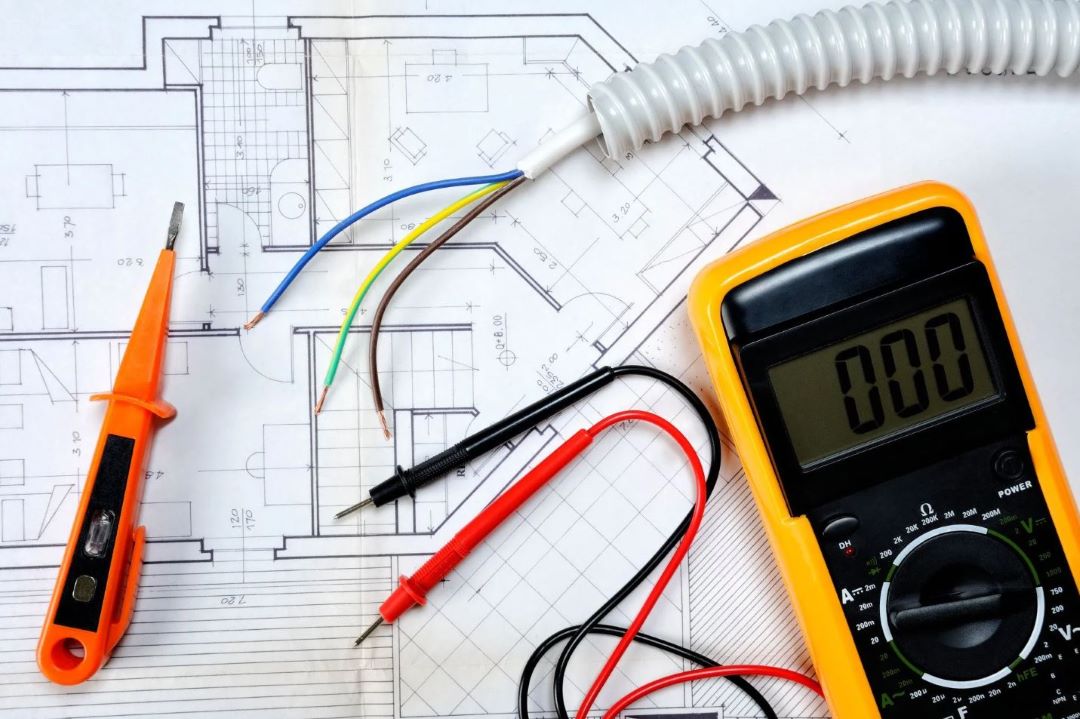
What are the classes of EMA electrical worker licenses?: Electrical Licence Types
The three classes of EMA electrical worker licenses are electrician, electrical technician, and electrical engineer. These licenses are obtained through a comprehensive process that includes the Licensed Electrical Worker Course and passing the required assessments.
- Electrician (Grade 7): An electrician is certified to perform electrical work for low voltage installations with an approved load not exceeding 45kVA. However, their scope of work is limited to such installations and does not extend to high voltage or complex electrical systems.
- Electrical Technician (Grade 8): An electrical technician holds an electrical work license that allows them to carry out electrical work for both low and high voltage installations, up to an approved load not exceeding 500kVA. They have a broader scope of work compared to an electrician and can handle more complex electrical systems.
- Electrical Engineer (Grade 9): A licensed electrical engineer has the highest level of certification. They are authorized to work on low and high voltage installations, including complex electrical systems. Their expertise extends to designs, plans, and supervising electrical works. They may also be involved in the submission of plans to the relevant authorities, such as the Professional Engineer for approval.
To obtain these licenses, individuals must enroll in a licensed electrical technician preparatory course, such as the EN032 Licensed Electrician Preparatory Course offered by institutions like ITE and SkillsFuture.
Upon completion of the course and passing the written assessments, applicants can proceed with their license application, which involves submitting the appropriate documents, paying the application fee, and adhering to the regulations set by EMA.
It's important to note that each license has specific scopes and limitations, outlined by EMA, that individuals must adhere to in their respective roles as electricians, electrical technicians, or electrical engineers.
These limitations may include approved load limits, types of installations, and specific responsibilities within their field of expertise.
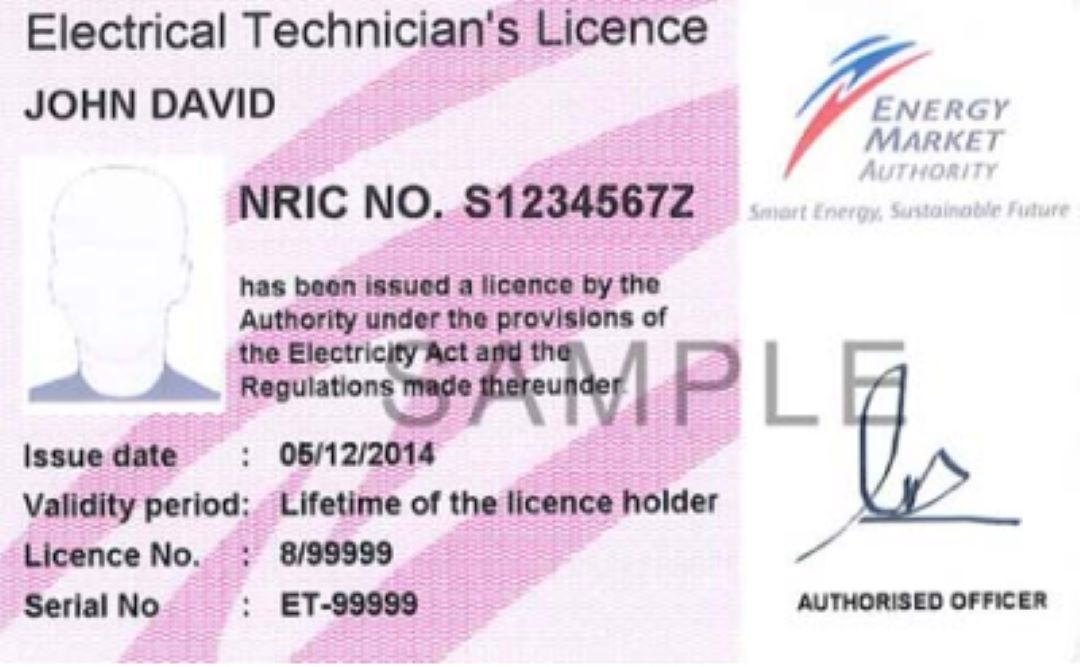
How to obtain electrical license?: Licensed Electrical Worker Course
To obtain an electrical license, begin by enrolling in a licensed electrical worker course in Singapore, such as the EN032 Licensed Electrician Preparatory Course.
This course, offered by institutions like ITE and SkillsFuture, provides comprehensive training on electrical work and prepares individuals for the necessary examinations to become a licensed electrical technician or engineer.
The EMA LEW course covers various aspects of electrical power engineering, equipping students with the knowledge and skills required to excel in their roles as licensed electrical technicians or engineers.
Upon completion of the LEW course and passing the written assessments, individuals can apply for the license through the relevant authorities, such as the Singapore Polytechnic or other approved institutions.
The license allows professionals to carry out electrical installations and related work, adhering to the regulations stipulated by the Electricity Act.
It is important to note that specific installation and operation voltage restrictions may apply, and certain projects may require the involvement of a registered professional engineer.
By obtaining the licensed electrical technician preparatory certificate or a diploma majoring in electrical engineering from a recognized institution, individuals can demonstrate their competence and eligibility for the license.
The application process typically involves submitting relevant documents, including proof of qualification, completing an application form, and paying the necessary fees.
It is essential to stay updated on the latest regulations and industry standards in Singapore relevant to licensed electrical work.
Continuous learning and professional development are crucial to maintaining the license and ensuring the safe and efficient execution of electrical projects.

How to check for a valid license?: Licensed Electrical Workers (LEW)
To check for a valid license, start by visiting the e-license information service portal (ELISE) and search for the worker by their name, license number, postal code, or street name.
This online platform provides a convenient and efficient way to verify the credentials of licensed electrical workers in Singapore.
By entering the relevant details, including the license number, you can quickly access information regarding the worker's qualifications and their authorization to perform electrical work.
This ensures that the individual conducting electrical installations or troubleshooting is indeed a licensed electrical technician, engineer, or electrician, authorized to carry out such tasks safely and efficiently.
ELISE serves as a valuable resource for confirming the validity of licenses and promoting compliance with regulations to uphold the highest standards in electrical work.
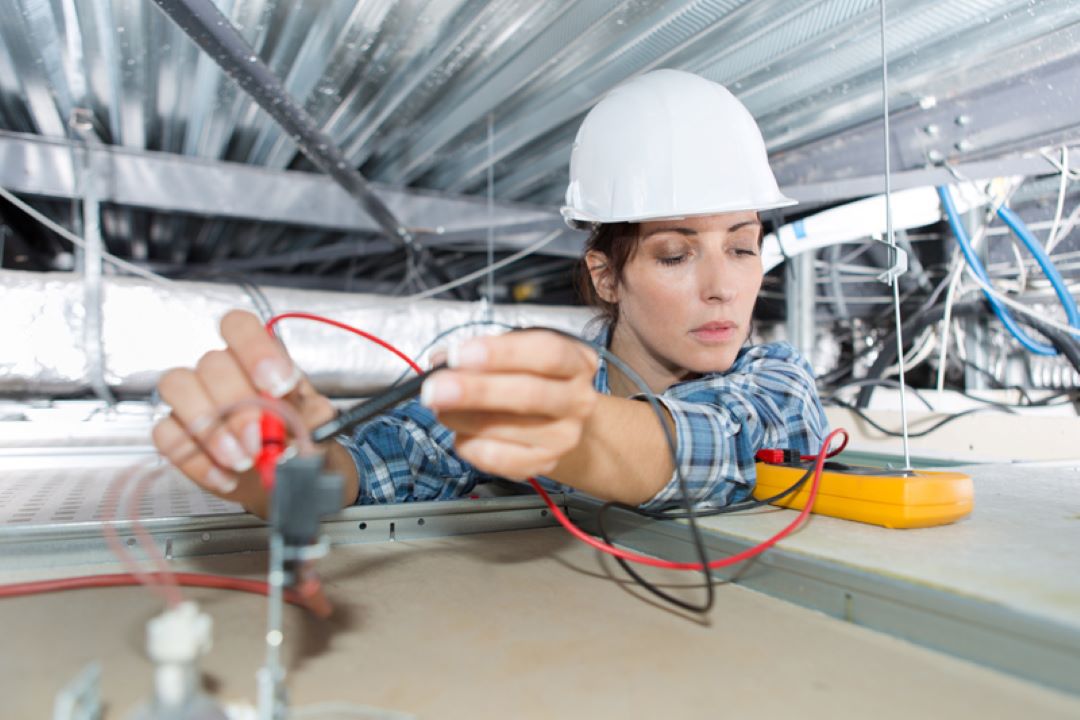
What does a Licensed Electrical Worker LEW do?
A Licensed Electrical Worker (LEW) plays a crucial role in ensuring the smooth operation and safety of electrical systems. They are responsible for attending to power outages, troubleshooting electrical malfunctions, and eliminating any issues that may arise with the electrical systems.
LEWs also conduct evaluation studies to provide solutions for power quality and energy efficiency improvements. They liaise with SP PowerGrid, Energy Market Authority (EMA), and other relevant authorities for energization and power supply-related matters.
Additionally, LEWs work with electrical drawings, including Single-Line Diagrams, to ensure accurate installation, protective devices, and compliance with operating voltage restrictions.
They collaborate closely with licensed electrical engineers and technicians to achieve approved load requirements and adhere to subsidiary regulations.
Engaging a Licensed Electrical Worker (LEW) for your electrical needs ensures compliance with regulatory standards and the safe operation of electrical systems. If you are seeking guidance on the process of engaging a LEW or require an inspection of your electrical infrastructure, check out our comprehensive guide for more information.
In summary, LEWs possess the expertise and knowledge to handle electrical systems, ensuring the reliable and efficient operation of electrical infrastructure.
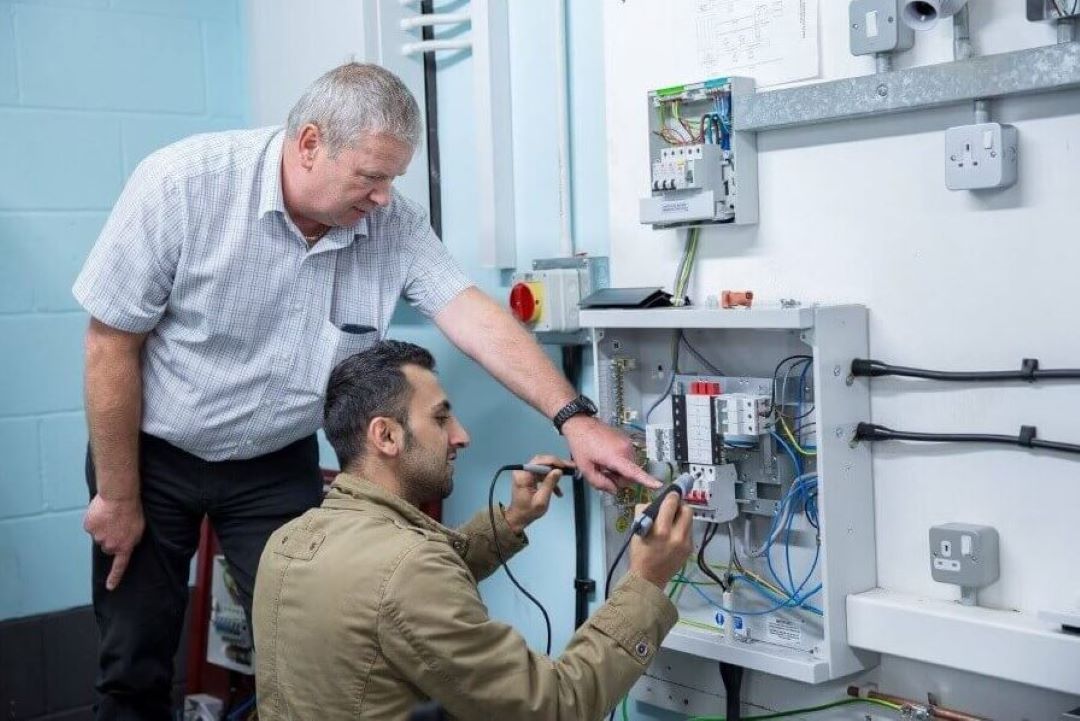
How do you qualify as a LEW?
You qualify as a Licensed Electrical Worker (LEW) by possessing a National Institute of Technical Education (NITE) Certificate relevant to the electrical work an electrician is authorized to perform, such as a diploma majoring in installation from Singapore Polytechnic.
Additionally, you must have at least 2 years of practical experience in Singapore relevant to the electrical work, an electrician is authorized to perform.
Alternatively, you can qualify with a minimum of 10 years of practical experience in Singapore, or at least 5 years of practical experience in Singapore that is relevant to the electrical work an electrician is authorized to perform.
Completing the Licensed Electrician Preparatory Course (Programme Code: EN032) conducted by the Singapore Institute of Power and Gas is also a requirement.
This course covers topics such as the Electricity Act, electrical installation, and written assessments on electrical power engineering relevant to the work of a licensed electrical technician.
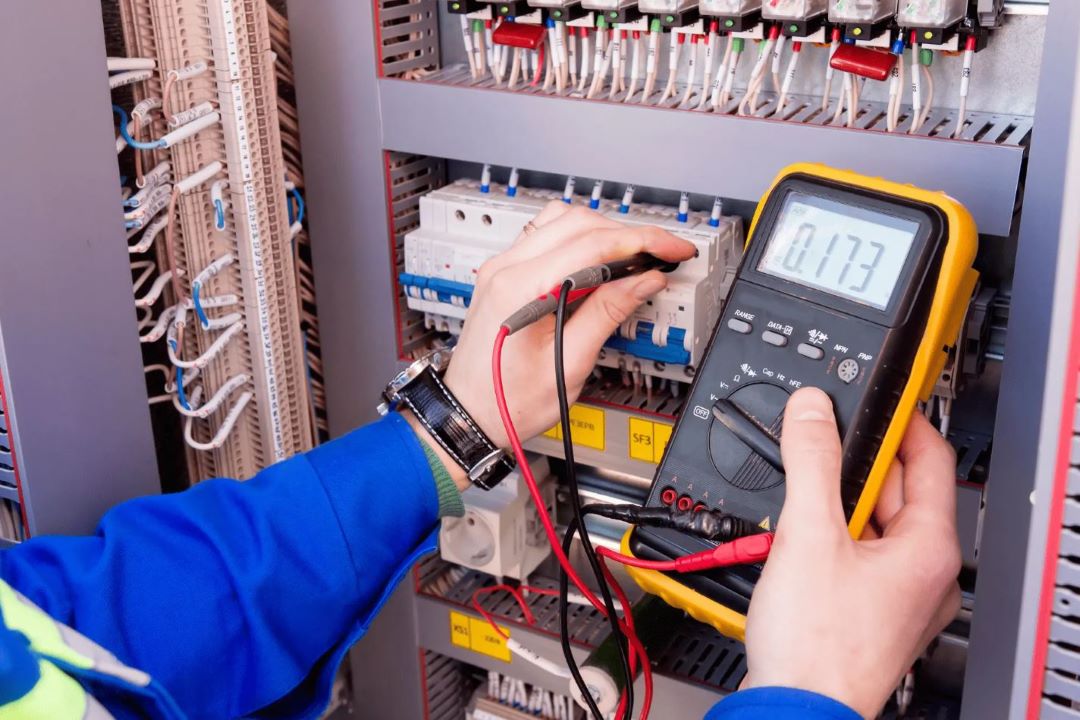
How do I know if my electrician is licensed in Singapore?
In Singapore, you can know if your electrician is licensed by visiting the e-service information service portal called ELISE (Electrical Licensing and Registration System).
ELISE allows you to search for a licensed electrical worker by their name, license number, postal code, or street name.
By using this portal, you can verify the credentials of the electrician you are considering for your electrical installation or repair needs.
Ensuring that your electrician holds a valid license is crucial for maintaining electrical safety in Singapore.
Licensed electrical workers undergo rigorous training, including a written assessment, to demonstrate their competence in handling electrical systems.
By hiring a licensed electrician, you can have confidence in their knowledge and skills to carry out electrical work according to the necessary safety standards.
When engaging an electrician for any electrical work, it is essential to check their license number and validate their license through ELISE.
This verification process helps to safeguard against unqualified individuals who may lack the necessary expertise to handle electrical installations safely.
By engaging licensed electrical workers, you contribute to maintaining the overall electrical safety standards in Singapore.
Want to engage a Licensed Electrical Worker (LEW) for rewiring and not sure what to expect? Here's the ultimate guide for HDB rewiring licensed electrical worker (LEW) to understanding the qualifications, expertise, and scope of services provided by LEWs in Singapore.

What is the full form of LEW in electrical work?
In electrical work, the full form of LEW is Licensed Electrical Worker. LEW refers to professionals who have undergone the necessary training and obtained the required LEW certification to carry out electrical work in Singapore.
These licensed electricians play a vital role in ensuring the safety and compliance of electrical installations in various settings, including residential, commercial, and industrial establishments.
Licensed Electrical Workers in Singapore are categorized into three classes: LEW Grade 7, LEW Grade 8, and LEW Grade 9.
Each class represents a different level of expertise and qualification, allowing electricians to handle electrical systems of varying complexity.
Their license numbers serve as proof of their authorization to perform electrical installations, repairs, and maintenance.
To qualify as a Licensed Electrical Worker, individuals must complete the appropriate training and education, such as the Licensed Electrical Worker Course offered by institutions like Singapore Polytechnic.
This comprehensive course covers electrical principles, electrical installation practices, and the relevant legal and safety requirements outlined in the Electricity Act.
Licensed Electrical Workers are responsible for various tasks, including conducting electrical installations, electrical inspection, and testing.
They also prepare and submit plans for electrical work, ensuring compliance with regulations set by the Energy Market Authority (EMA).
Their expertise is crucial in ensuring the safe and efficient functioning of electrical systems in both residential and commercial establishments.
By engaging a Licensed Electrical Worker, individuals and businesses can have peace of mind knowing that their electrical installations are being handled by professionals trained in the field.
These experts possess the necessary knowledge and skills to navigate the intricacies of electrical systems and ensure compliance with safety standards in Singapore.
If you have scheduled an appointment for LEW inspection, make sure you comply with this LEW inspection checklist: What are the SP requirements & what to look out for during inspection.